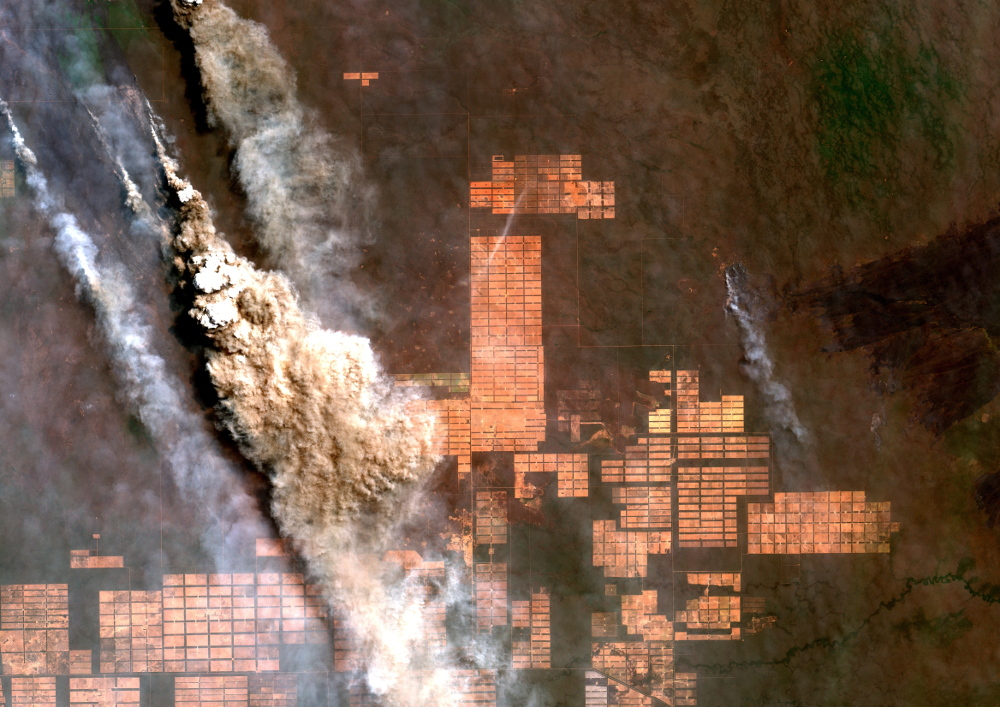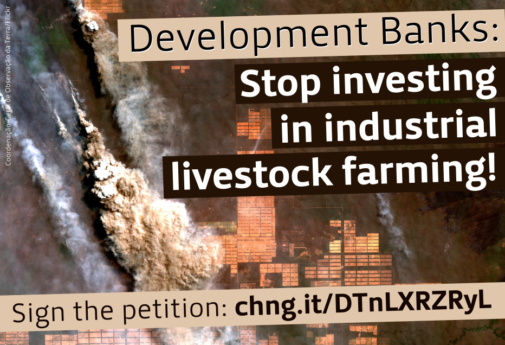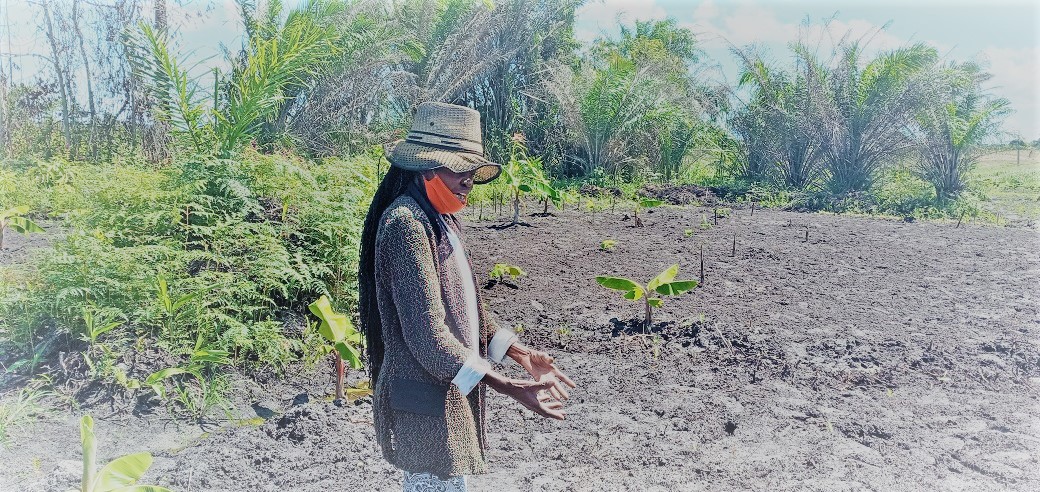Action alert! Development banks: Stop investing in industrial animal agriculture

As fires rage once again in parts of Latin America due to the expansion of cattle ranching, the Global Forest Coalition, Sinergia Animal and Feedback have teamed up to send a strong message to international development banks: stop fueling the climate crisis and new pandemics by investing in industrial livestock.
As part of this campaign we have launched a change.org petition in English, Spanish and Portuguese (French and Russian will be available soon) – please help us by signing it and spreading the word throughout your networks!

Development banks: Stop investing in industrial animal agriculture
One industry links two of the greatest crisis humanity faces – climate breakdown and new pandemics. That industry is industrial animal agriculture, responsible for runaway deforestation and 14.5% of greenhouse gas emissions, as well as for degraded natural environments and cruel animal welfare which make new viruses like Covid-19 more likely to emerge.
Yet major development banks – such as the World Bank and European Bank for Reconstruction and Development – who should be helping humanity create a more sustainable and safer world – are lending billions to the worst forms of animal agriculture. And they are ignoring our message to stop.
Development banks are funded through our taxes – contributions from governments all over the world. Will you sign our petition calling for them to immediately stop financing industrial animal agriculture?
What’s the problem with industrial animal agriculture?
Experts project that the livestock sector will account for almost half of the world’s allowable budget for greenhouse gas emissions by 2030 and 80% by 2050. Without urgent action, the industry will continue to drive climate breakdown, leading to more extreme heat, droughts, floods and poverty. Deforestation to make space for cattle ranching and to grow soy and maise to feed farmed animals is expected to keep destroying the Amazon and other vital forests. Indigenous peoples and local communities living in these regions are and will increasingly face displacement, criminalisation, and violence.
According to the United Nations, the Covid-19 pandemic is “a reminder of the gravity of biodiversity loss and of our unique interconnection with nature”. Its Environmental Program (UNEP) highlights that around 3 out of 4 new infectious diseases are zoonotic, meaning that they are generated by viruses that jump from animals to humans. If ecosystems keep being degraded and forests keep being destroyed, the natural barriers between our societies, nature, and wild animals are removed, thus creating conditions for wider spreads of viruses.
To make it worse, almost everywhere in the world, animals like cows, pigs, and chickens are raised in crowded and cruel factory farms, industrial facilities that confine thousands of animals together. Because in them, animals are often raised “in less than ideal conditions” – these industrial farms can help spread diseases and are irresponsibly using up some of the most important antibiotics for human medicine. The problems with factory farms go far beyond disease and cruelty – they have huge local impacts such as polluting the water of local communities, and despite their small size, require huge amounts of land to grow crops like soy for feed.
The livestock industry is big business – multi-million dollar corporations, with interests and activities all over the world. Instead of supporting these businesses, international development banks have the opportunity to give their financial support to businesses which can help build a greener, safer planet for animals and people.
Organisations from around the world are coming together to call them out, but we need your voice too. These banks represent people all over the world, we must stand up and tell them this financing isn’t acceptable, and it needs to stop.











